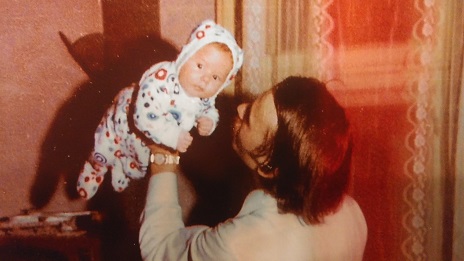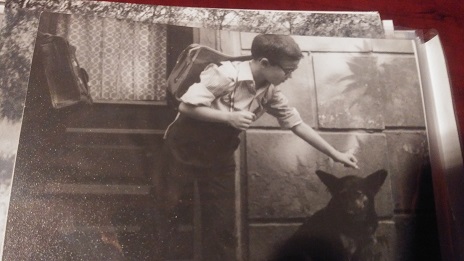
Early Life
I was born on the land of the ancient Dacs, known today as Romania. (I do not identify as having one nationality more than another). I grew up in communism under the dictatorship of Ceausescu. I was nine years old during the revolution and I still remember the sound of bullets as I hid in the hallway of our apartment. I still remember having only one orange a year at Christmas, growing up without stable electricity, heating or water (cold or hot) and my grandmother finding a dead rat in the middle of a loaf of bread.
I experienced first-hand the economic shortage and poverty of the false communist regime in the countries of Eastern Europe, even though my family belonged to the upper middle class – we were rich by Romanian standards. My father was a brilliant university professor of mechanics and my mother a civil engineer of some influence. However, both were not part of the Communist Party because of their values and our family suffered as a result. The country’s corruption was imposed on them as it was on all of them. My father was very affected by the fact that he was forced to give high marks so that students would succeed not according to academic standards, but according to their membership and influence in the party.

A year after the fall of the communist regime, disappointed by the high degree of corruption of the new Romanian government and the fact that things had not changed at all, my parents left for Italy. They didn’t come back for three years and during that time I spent my time with my grandfathers. In Italy, they did not have work permits and could live on low incomes and other black market jobs. Finally, they were granted the right to come to Canada as permanent residents as refugees.
My teens
Like most thirteen-year-olds, I didn’t appreciate being taken away from my friends and my well-known environment three times in a row – once when my parents went to Italy and I had to go live with my grandparents, once when I joined them to live a year in Italy and a third time when we came to Turtle Island (in the territory claimed by the Canadian state).
At school, my academic performance, fragile anatomy and polite attitude have made me the ideal target for bullying. I was pushed by my parents who never missed an opportunity to remind me of the sacrifice they made to take me to a country where I would have the chance to “succeed” in a way they never could. Despite this, I silently despised studies and school (so I never really studied) and all other forms of authority.
The need to conform forced me to make the same choices as everyone else.
Early carrer

I had to choose a career. My mother wanted me to be a doctor. My father advised me not to do so because of my inability to be disciplined. He suggested that software engineering might be a good choice given my mathematical skills. I was a nihilist who thought nothing made sense and wanted to have fun until the day I died. I became a software engineer.
The first few years were good. I made a lot of money and got some dopamine by solving programming problems. I started to live the “American dream”. I quickly realized the cracks of the for-profit system and to compensate, I resorted to weekend alcoholism. At twenty-eight years old, I was at the top of my career and I had almost everything you’re supposed to have by the standards of society. The only thing missing was happiness. I did the only thing my body allowed me to do, I had my first crash and burn and rebooted my system.
My father died of cancer shortly after, leaving me in the greatest darkness of my life. I had lived my life in his shadow, making no personal decisions, trusting his judgment above all else. His brilliance was unequaled in my eyes, but his ambition and will were shattered by our toxic system. I still remember asking him why he had not used his skills to change our system. I will always remember him telling me with a nostalgic look, that one day I will understand (I still don’t).




